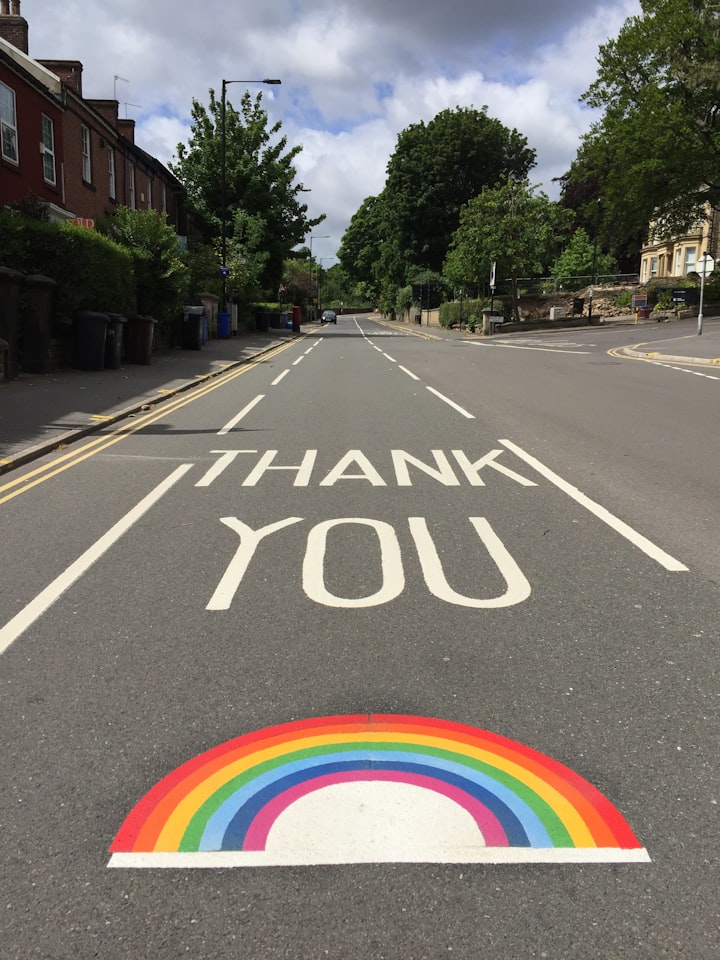
As we drown in a sea of stress, countless calm and staid gurus remind us of the necessity of appreciation in maintaining a hold on our existence - so screwed up that it frequently appears to slip out of our hands. The mindfulness advice that is more relevant than ever for this historical moment that has put us all to the test is to constantly find a moment to practice thankfulness, aka the habit that does a lot of good for our mental and physical wellbeing. That's not all: it can even modify our brain such that it becomes unselfish. Yes, as Vox reports, a massive body of research on gratitude conducted over the last 20 years - involving real VIPs in psychology and psychiatry - has revealed that there is a profound physical connection between gratitude and altruism, so much so that both positive traits share a neural path inside our brain. To cut a long tale short, when we feel grateful for anything, our brain immediately becomes more kind and tolerant of others. And the advantages are numerous.

Christina Karns, a neurologist at the University of Oregon, is the most dedicated researcher on the issue, and has been researching it since 2017. She started her investigation by questioning what occurs in the brain when you receive a gift and what happens when you don't. The answers varied depending on the issue researched, but she nonetheless exposed her participants to brain scans, displaying a computer that either paid money into their bank account or gave it to a food bank. We could witness this neurological link between thankfulness and generosity unfolding in the ventromedial prefrontal cortex, or a deep location in the brain's frontal lobe, in real life. We're talking about an anatomical area "that "is" accountable for a wave of neurochemicals of pleasure in the correct circumstances."

In essence, the volunteers who were rated as the most appreciative and altruistic in an early questionnaire had a very high response in this brain area exactly as the computer poured the money at the food bank, showing that they experienced a surge of happy sensations. - demonstrating that height is beneficial to our brain. Karns, dissatisfied, decided to go even further into the issue: she separated the participants into two groups. Over three weeks, members in one group were required to talk solely about things they were grateful for, while the other group addressed various events in the lives of individuals present without a call to appreciation. Participants in the first group indicated that they felt even more grateful, so much so that the impacted brain areas began to respond more to the computer animation that distributes money to charity - becoming less delighted if they received the money themselves. To cut a long tale short, practicing gratitude transformed the brain's reaction; giving to the needy has become more significant than receiving in the first person, with a neuronal reward that is a sense of joy and goal achievement.
The benefits are usually not long-lasting, but they can nevertheless provide a significant lift to our mood, the sensation of accomplishment, and our self-esteem.
How to develop thankfulness to reap all of the advantages

The main truth is that being thankful benefits us greatly, but how should we act? How is thankfulness fostered? The expert argues that many religious holidays, such as Christmas, already drive us to do it, causing us to think more about others - but that's not all. Several studies have found that prayer has a significant impact on our levels of thankfulness. Writing a thankfulness notebook can also be beneficial - once or twice a week is more helpful than daily since we risk becoming accustomed to the good stimulus and no longer experiencing it. We should write down what makes us feel this way, enjoying the sensation and focusing on the people we are thankful to and the events that occurred rather than stuff.
Another trick is to write thank-you letters to family and friends, even if we never send them. This gratitude exercise has a long-lasting positive effect on the pregenual anterior cingulate cortex, which is involved in predicting the outcomes of our actions. And if we feel like visiting these folksand reading the letter to them, or simply expressing our thanks aloud, the happy sentiments rise significantly and stay for a long time. Psychologists also recommend that we spend our money on experiences rather than things, or that we devote ourselves to experiential consumption, because, as the Greater Good Science Center at UC Berkeley explains, "as a relatively adaptive naturalistic behavior, experiential consumption can be a particularly easy way to encourage the experience of gratitude."

The next piece of advice is to devote as much time as possible to meditation, an activity that dramatically alters us boosts our sense of appreciation and decreases stress levels. In practice, the altruism and gratitude that give our brain so much joy must be exercised much like muscles in the gym.
Thank you for reading.
See you next time!
Wero






Comments
There are no comments for this story
Be the first to respond and start the conversation.